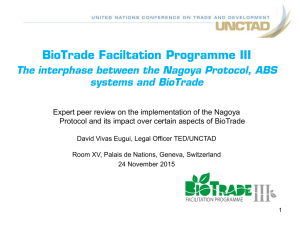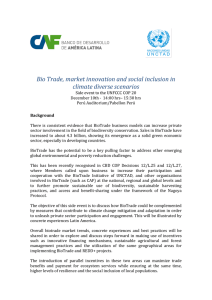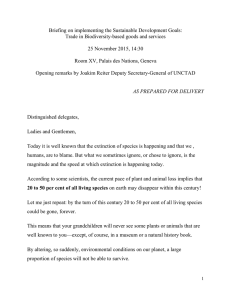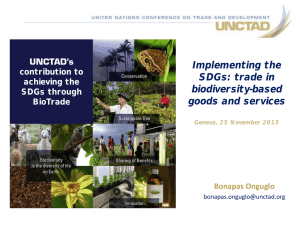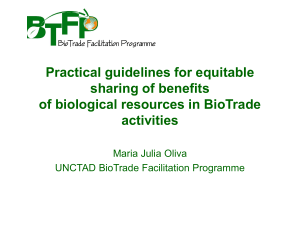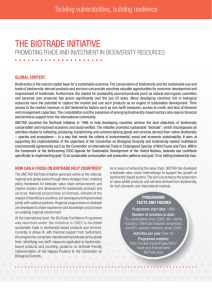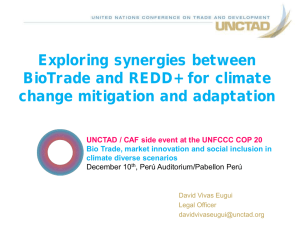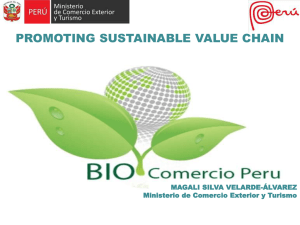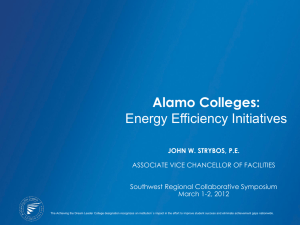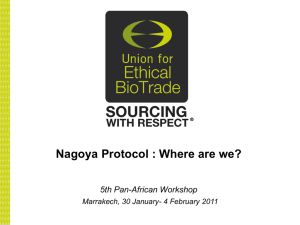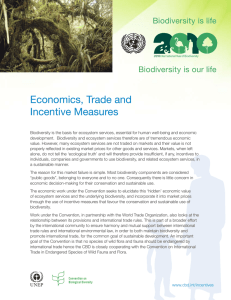SECO’s Commitment to Biotrade
advertisement
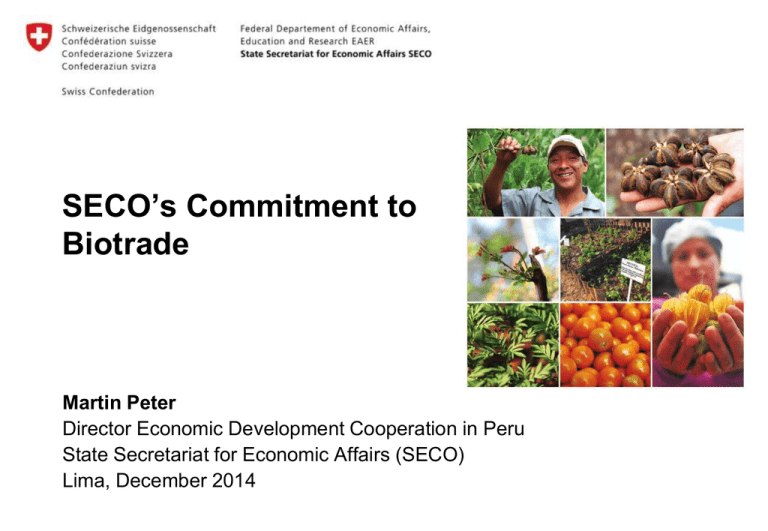
SECO’s Commitment to Biotrade Martin Peter Director Economic Development Cooperation in Peru State Secretariat for Economic Affairs (SECO) Lima, December 2014 Why does SECO support Biotrade? • Agriculture as a key driver of deforestation and climate change • Biotrade: means to stop this trend and promote sustainable development: Promotion of responsible use of native biodiversity Conservation of traditional knowledge and native biodiversity Economic benefits of producers/ farmers 2 SECO support to national biotrade initiatives Country / Region Value Chains/Sectors supported Peru Food and natural ingredients Vietnam Natural ingredients, food and pharmaceutical ingredients (herbal medicine products) Value added products Food Cosmetics Pharmaceuticals Indonesia Natural ingredients, rattan and ecotourism Africa Natural ingredients (“Phytotrade”) SECO Peruvian Experience Joint Donor Effort • Under the National Biotrade Promotion Programme (PNPB) • Together with GIZ Goals 1. Policy and legal framework 2. Supply-side capacities and product development 3. Market access Two phases: 2006-2013 Prioritized value chains PIURA Native cocoa Carob tree SAN MARTÍN Sacha inchi Medicinal plants Página 5 CAJAMARCA Tara Golden berry Biotrade practices and principles applied Biotrade principle Practice applied Forest management plans Sustainable use of biodiversity Organic agricultural system Conservation of biodiversity Technological improvement (Energy source replacement) Socio-environmental monitoring System Equitable sharing of benefits derived from the use of biodiversity Distribution of Non- monetary benefits Capacity transfer to suppliers Legal contracts with providers Socio-economic sustainability Food Safety Management Biotrade practices Conservation Technological improvement (Energy source replacement) ASPRABOS / Ecobosque (Algarrobo) Sustainable use Sharing of benefits Organic agricultural system Villa Andina SAC Legal contracts with providers Roda Selva SAC Studies for adaptation to climate change in Biotrade value chains • Climate change impacts and adaptation measures for the conservation of dry forest and sustainability for the carbon derivates value chain in Piura • Evaluation of germplasm of Sacha Inchi (volubilis plukenetia l) located in Amazonas, San Martin and Ucayali regions; introduced to the climatic conditions of Alto Mayo • Economic impact of climate change on cocoa crops in San Martin and Lamas • Evaluation of climate change impacts and adaptation measures in cocoa farming in Morropón and Huancabamba (Piura) • Taxonomy identification, life cycle of Tara moths and main natural biological controls Outputs 1. Policy and legal framework • Verification tool of the Principles and Criteria of BioTrade • Model of collaboration between public sector, companies and farmer associations BioFach 2. Supply-side capacities / product development Perú Natura • Standards: organic; forest management plans; HCCP • Establishment of public private partnerships • Innovation projects in companies Food Mistura safety 3. Market access • Training on market access and trade fair participation (Biofach, PeruNatura, Mistura, Surquillo bio-fair, etc.) • Novel Food dossier for Sacha Inchi oil Mistura Impact (2nd phase) 20 120 3,021 5,682 Companies Organizations Farmers Hectares 106% Increase in profit margins received by producers 73 % Increase in exports by the companies advised by the project (2010 – 2013) benefitted from project support Lessons learned / Challenges 1. Increase linkages among different actors and among different levels of government is crucial 2. Further product development is required to add value to Biotrade products and improve competitiveness: quality, research and innovation 3. Develop a set of incentives for companies working with Biotrade approach is necessary Thank you Martin Peter Director of Economic Development Cooperation in Peru State Secretariat for Economic Affairs (SECO) E-mail: lim.seco@eda.admin.ch www.cooperacionsuizaenperu.org.pe/seco www.seco-cooperacion.ch 12
